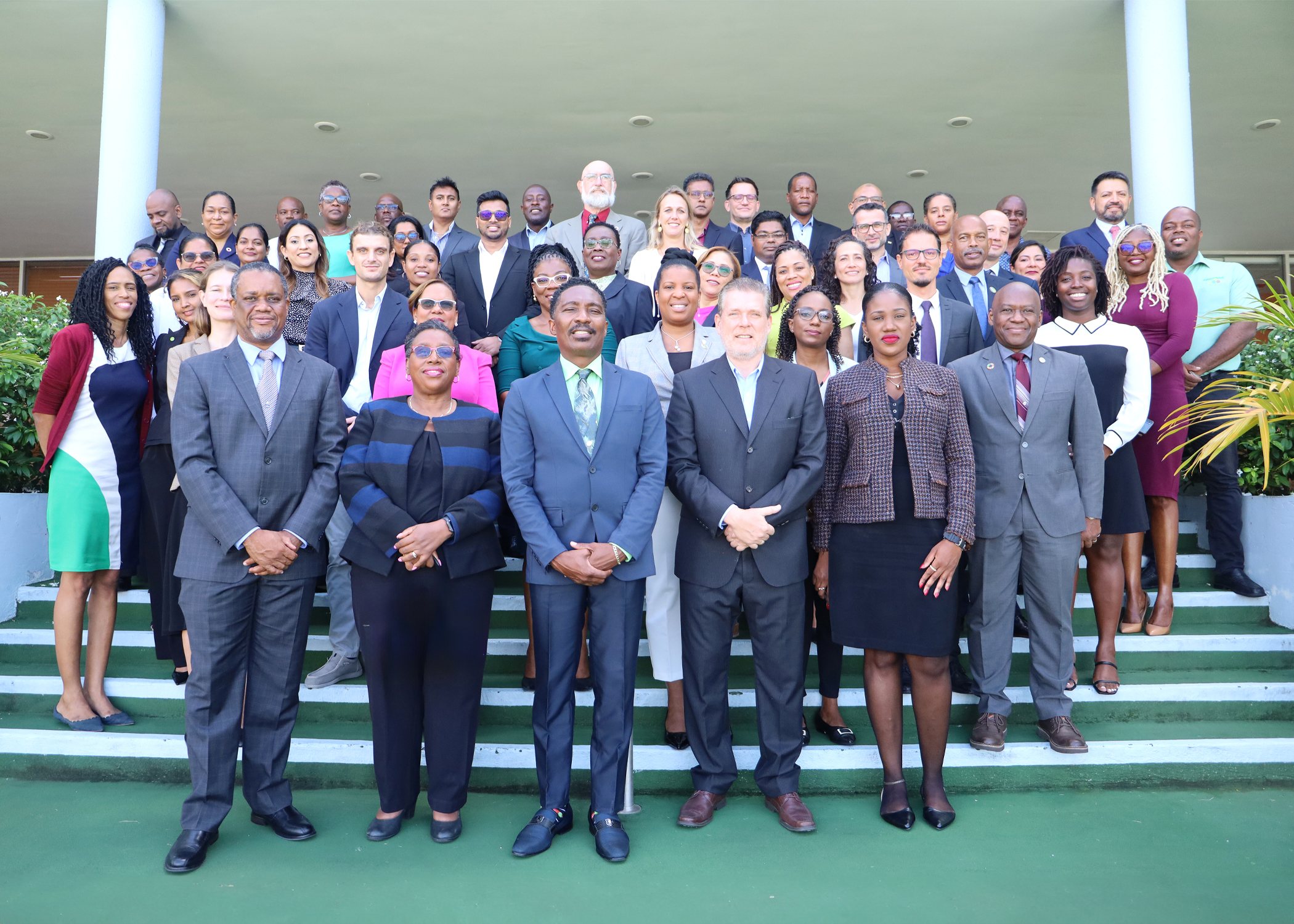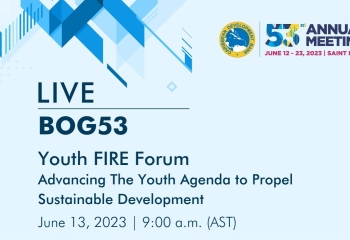Forging New Opportunities to Finance Circular Economy Solutions in the Caribbean

The Regional Meeting - Financing Circular Economy Solutions for Waste Management, held under the EU-funded initiative Zero Waste in the Caribbean: New Ways, New Waves and co-financed by the German Cooperation in partnership with CARIFORUM, concluded on September 6. At least sixty waste-management experts, primarily from across the Caribbean, met in Barbados from 3-6 September to discuss financial instruments, regional challenges, and financing options from development partners and the private sector, aiming to transform waste pollution into circular economy opportunities.
This initiative marked a pivotal moment in addressing critical waste management issues and promoting a circular economy across the Caribbean region. It was organized by the UN Environment Programme (UNEP), with the support of the European Union (EU), in collaboration with the German Agency for International Cooperation GmbH (GIZ), the Organisation of Eastern Caribbean States (OECS), the Ministry of Environment & National Beautification of Barbados (MENB), the Inter-American Development Bank (IDB), and the Caribbean Development Bank (CDB). The event brought together stakeholders from across the Caribbean to forge stronger partnerships between the public sector, the private sector and regional and international financing partners.
The opening ceremony featured representatives from key organisations and country waste management and finance sector experts. Also present was Hon. Adrian Forde, M.P., Minister of Environment of Barbados, delivering the keynote address. He welcomed participants, highlighting the region’s urgent need for sustainable waste management solutions, “The Government of Barbados fully supports the Zero Waste in the Caribbean Initiative and to this end, I am pleased to be here to commend all the stakeholder partners for this very important project which is helping CARIFORUM member states in developing appropriate waste management strategics. [..] I encourage all stakeholders, Governments, financing institutions, and businesses, to explore and support circular economy initiatives. Together, we can pave the way for a more sustainable and prosperous future for our region.”
The meeting focused on technical sessions that addressed the Caribbean’s waste management challenges, and global and regional financing mechanisms. CARIFORUM countries presented their specific financing needs, with Luca Trinchieri, Team Leader for the Green Deal Partnership with the Caribbean at the EU Delegation to Barbados, reinforcing the EU’s commitment to supporting the region. He remarked, "The European Union reaffirms its ongoing commitment to the Caribbean through dedicated funding, technical assistance, and knowledge-sharing. Partnerships are crucial to achieving our shared goals of sustainable development and environmental protection. We encourage further collaboration between Caribbean nations, the EU, and international financial institutions to unlock the region’s full potential in advancing circular economy solutions."
Similarly, Vincent Sweeney, Head of the UNEP Caribbean Sub-Regional Office, emphasized the broader context of financing, “Financing is not just about providing money; it is also about creating the right conditions for investment. This includes developing regulatory frameworks that incentivize sustainable practices, fostering public-private partnerships that bring together diverse expertise, and building the capacity of local institutions to manage and deploy funds effectively."
Building on this point, L. O’Reilly Lewis, CDB Director (Ag.) Projects Department highlighted the unique challenges and opportunities facing the region, “As the tides of global environmental issues rise, so must our dedication to overcoming them. Our unique position as small, open, service-based economies, heavily reliant on imported fuel and susceptible to natural hazards, presents both challenges and opportunities. It is through robust collaboration that we have the power to turn these challenges into triumphs. The Bank has demonstrated its commitment to this cause with actionable initiatives and substantial financial backing.”
Experts at the meeting presented global perspectives on circular economy financial instruments and their adaptation to the Caribbean context, examining the status of financial mechanisms in CARIFORUM countries. They provided recommendations for improving existing systems and introducing new financing options for the private sector. Among the key takeaways were the lessons learned from implementing financial instruments such as tipping fees, deposit return systems, and extended producer responsibility policies.
Jean Eric Theinhardt, Chief of Operations at the IDB Country Office in Barbados, underscored the importance of accurate data, “One challenge remains in the sector that I am sure is familiar to most: the lack of available and accurate data on waste in the region. This limits the ability to plan, make informed decisions, and assess the impact of public policies. Digital transformation is crucial for advancing the sector. To tackle this head-on, the IDB is supporting countries in evolving towards a data-driven and statistical approach in solid waste management."
Over 30 bilateral meetings facilitated new partnerships for the public and private sectors, focusing on innovative financial solutions for waste management projects and infrastructure development. The meeting also included site visits to recycling and landfill facilities in Barbados, showcasing best practices in the field, that could be adapted to other Caribbean countries.
The composition of the group in terms of number and key roles in the region underscores the vital role of financing partners to support public and private sector initiatives in advancing sustainable development and building environmental resilience across the Caribbean.


